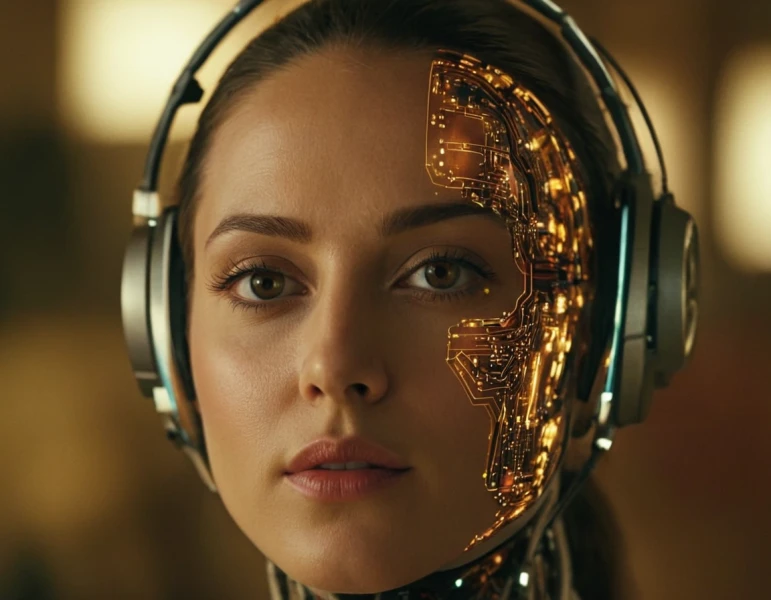Artificial Intelligence Applications: The Silent Revolution That Will Transform the World
Artificial Intelligence Applications: The Silent Revolution That Will Transform the World
I feel obliged to tell you what is happening with artificial intelligence applications because this is not just science fiction. This is the reality that is transforming our lives at a speed you can't imagine. And believe me, I say this from experience, because I have had the privilege of seeing firsthand how these applications are doing things that, until recently, we thought impossible.
What are artificial intelligence applications?
To begin with, artificial intelligence (AI) applications are technological tools that use advanced algorithms and data to perform tasks that would normally require human intelligence. This includes everything from speech recognition and data analysis, to real-time decisions, such as those made by autonomous cars.
But, and here's the interesting thing, these applications are not limited to geeks or high-tech labs. They are in our hands, in our pockets, in every interaction we have with our phones or connected devices. And the best part is that they learn. Yes! These systems get smarter over time.

Current examples of artificial intelligence applications
AI is everywhere and, for sure, you have already interacted with it more times than you think. I'll explain with clear examples:
Virtual assistants: Alexa, Siri, and Google Assistant are perhaps the best-known examples. These virtual assistants not only respond to voice commands, but also analyze our usage patterns to provide increasingly personalized responses. If you tell Alexa to turn off the lights or ask Google what the weather will be tomorrow, you are using AI. These systems process natural language and learn from you.
Health applications: One of the fields where AI is generating the most impact is in healthcare. From medical diagnostics to genomic data analysis, AI applications can process more information and with greater accuracy than a team of human doctors. IBM's Watson Health is a perfect example of this, helping to discover patterns in complex diseases such as cancer.
Smart Finance: Have you heard of robo-advisors? These are automated platforms that help you manage your investments without the need for a human advisor. Apps like Betterment or Ally Financial use AI to offer you personalized financial advice in real time.
Personalized education: Apps like Duolingo or ELSA Speak use artificial intelligence to adapt lessons to your learning level. They analyze how you answer questions and adjust the pace of the course based on your performance, giving you that feeling that you are actually improving in each session.
Why is artificial intelligence so important?
If experience has taught me anything, it's that AI is not only here to stay, but to improve us. The amazing thing about AI applications is that they allow machines to do things that we humans could not do with the same speed or accuracy.
Automation: From manufacturing to customer service, artificial intelligence applications are replacing repetitive and monotonous tasks, freeing people to focus on more creative and strategic work.
Massive data analysis: Humans have a limit to the amount of information they can process, but machines do not. AI systems can analyze mounds of data in a matter of seconds and draw conclusions that would take us days or even months.
Accuracy and efficiency: Ever heard of misdiagnoses in medicine? Well, AI is helping to reduce those errors by analyzing medical images with near-perfect accuracy. The same goes for risk prediction in finance. Applications like Darktrace help detect fraud before it happens, something that would be almost impossible for a human being.
The sectors most impacted by artificial intelligence
Health
I already mentioned it before, but it's important to dig a little deeper. In healthcare, artificial intelligence applications are enabling the development of personalized medicine. Instead of a "one-size-fits-all" approach, AI can analyze a person's genetic data and recommend specific treatments that increase efficacy and reduce side effects.
Transportation
Another sector where AI is making huge leaps is in transportation. Tesla and its famous autonomous driving system is the best example of how artificial intelligence is transforming the way we get around. Sensors, cameras, and intelligent algorithms allow cars to not only drive themselves, but also learn to avoid accidents and optimize routes.
Agriculture
In the world of agriculture, AI applications are helping to improve crop yields and reduce resource use. Drones equipped with artificial intelligence sensors can monitor crop health, detecting pests or irrigation problems before they become major drawbacks.
The future of AI apps
Let's talk about the future. What I've seen over the past few years makes me think that we are only scratching the surface of what artificial intelligence applications can do. Advances in Generative AI are already changing how we create content. Models like GPT-4 (the one you're using right now) can generate text, images and even music, something that will open unthinkable doors for artists, developers and companies of all kinds
Can you imagine what this will mean for creativity? Instead of replacing humans, AI will empower us to create things that we could only dream of before.
Faculties
Trainings
The faculties embrace diverse academic disciplines and fields of study, opening doors to new perspectives and exploring different spheres of wisdom in a constantly evolving world.





